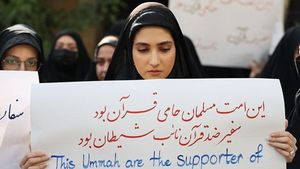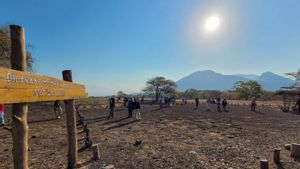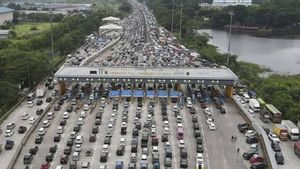JAKARTA - In order to find a breakthrough in a prolonged strike by an intern, a medical professor across South Korea decided to submit his resignation from March 25 as a collective measure to pressure the government.
Despite resigning, the professors will still treat patients in hospital as more than 90 percent of the country's 13,000 interns have stopped working since last month to protest the government's decision to increase the quota for registering 2,000 medical schools.
The decision was taken in an online meeting by professors from 20 universities on Friday evening, according to the group. In South Korea, there are 40 medical universities across the country.
Of the 20 universities, professors of 16 medical schools "very supportive" of the decision to resign and four other schools are gathering opinions on whether to join, according to Bang Jae-seung, chair of the medical school professor's emergency committee.
"This decision does not mean we ignore patients. But if the current situation continues, there will be permanent damage to public health services," Bang said in a press conference, reported by ANTARA, Saturday, March 16.
He said the medical professor would do his best in treating patients until the process of their resignation is complete.
"We submitted our resignation to prevent a medical disaster because we thought the deal could only be reached after the government withdrew from plans to increase the number of registrations by 2,000 people," said Bang.
SEE ALSO:
Since earlier this week, professors of medicine have threatened to submit a mass resignation unless the government provides a breakthrough in the prolonged strike. Before resigning, the group will hold a meeting next Friday to see the development of the situation.
March 25 is a time limit for interns to express their opinion on the suspension of work permits sent by the previous government to around 5,000 junior doctors who refused orders to return to work.
Medical circles have protested the government's plan to increase the quota for registration of 2,000 medical schools starting next year. The government says the move aims to address the chronic shortage of doctors in rural areas and the essential but less popular medical fields.
However, doctors claim the increase will reduce the quality of medical education and other services, causing high medical costs for patients.
They called for steps to first deal with low-paid specialists and increase legal protection against excessive medical malpractice lawsuits.
The protracted strike raises the patient's concern that they may not receive medical treatment at the right time.
Major public hospitals have experienced cancellations and delays in emergency operations and medical care as they rely heavily on interns.
The English, Chinese, Japanese, Arabic, and French versions are automatically generated by the AI. So there may still be inaccuracies in translating, please always see Indonesian as our main language. (system supported by DigitalSiber.id)
















